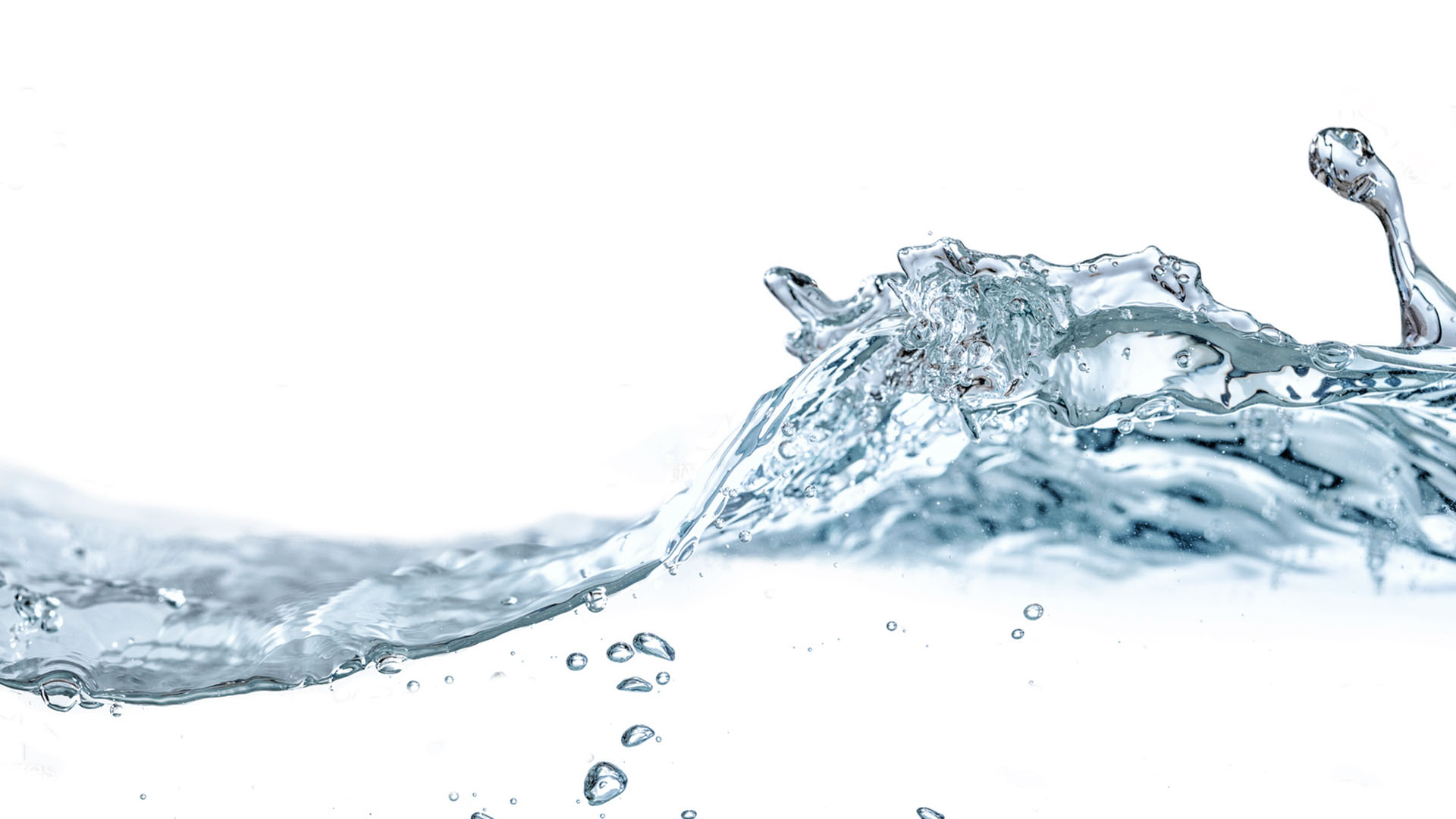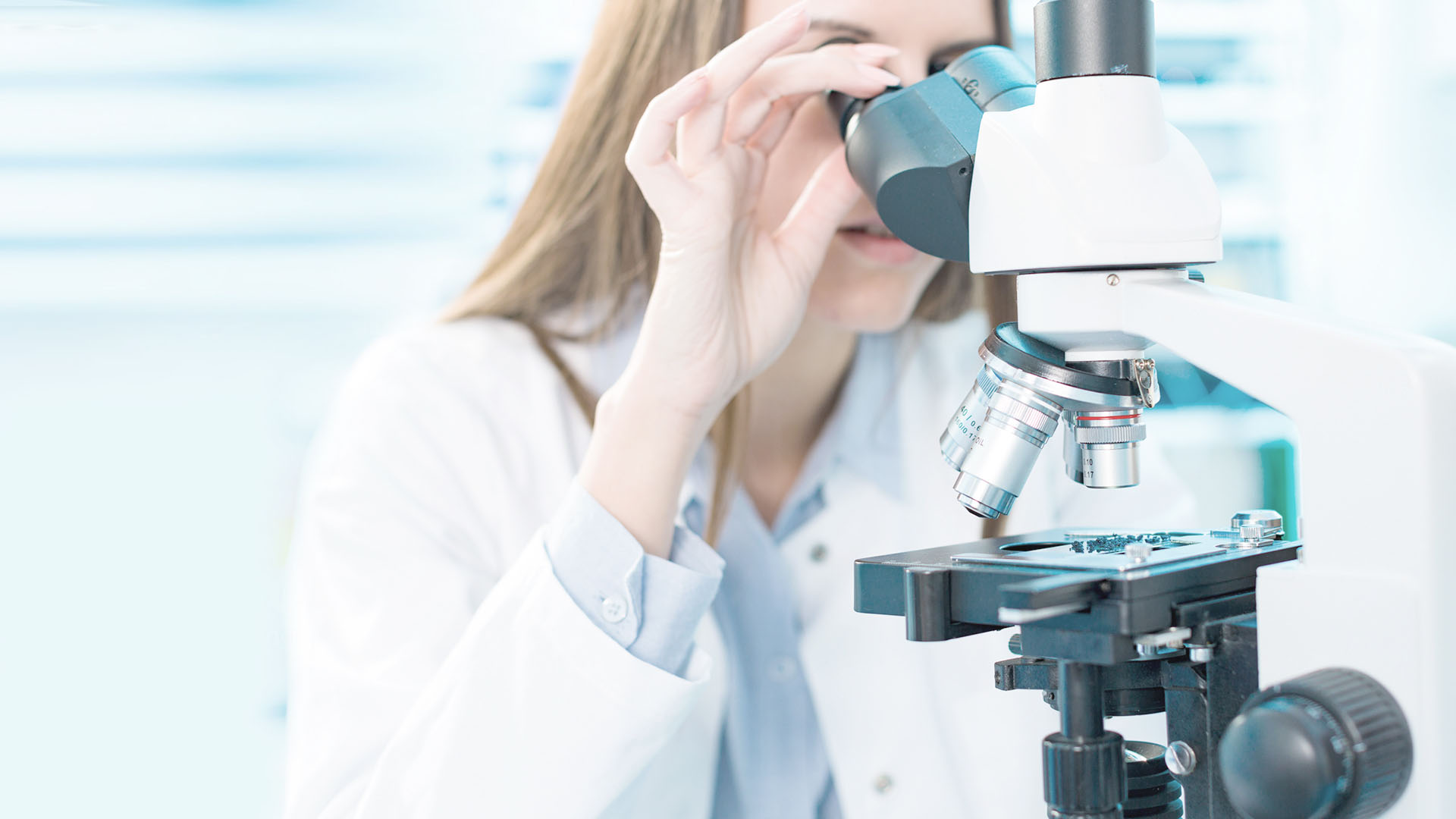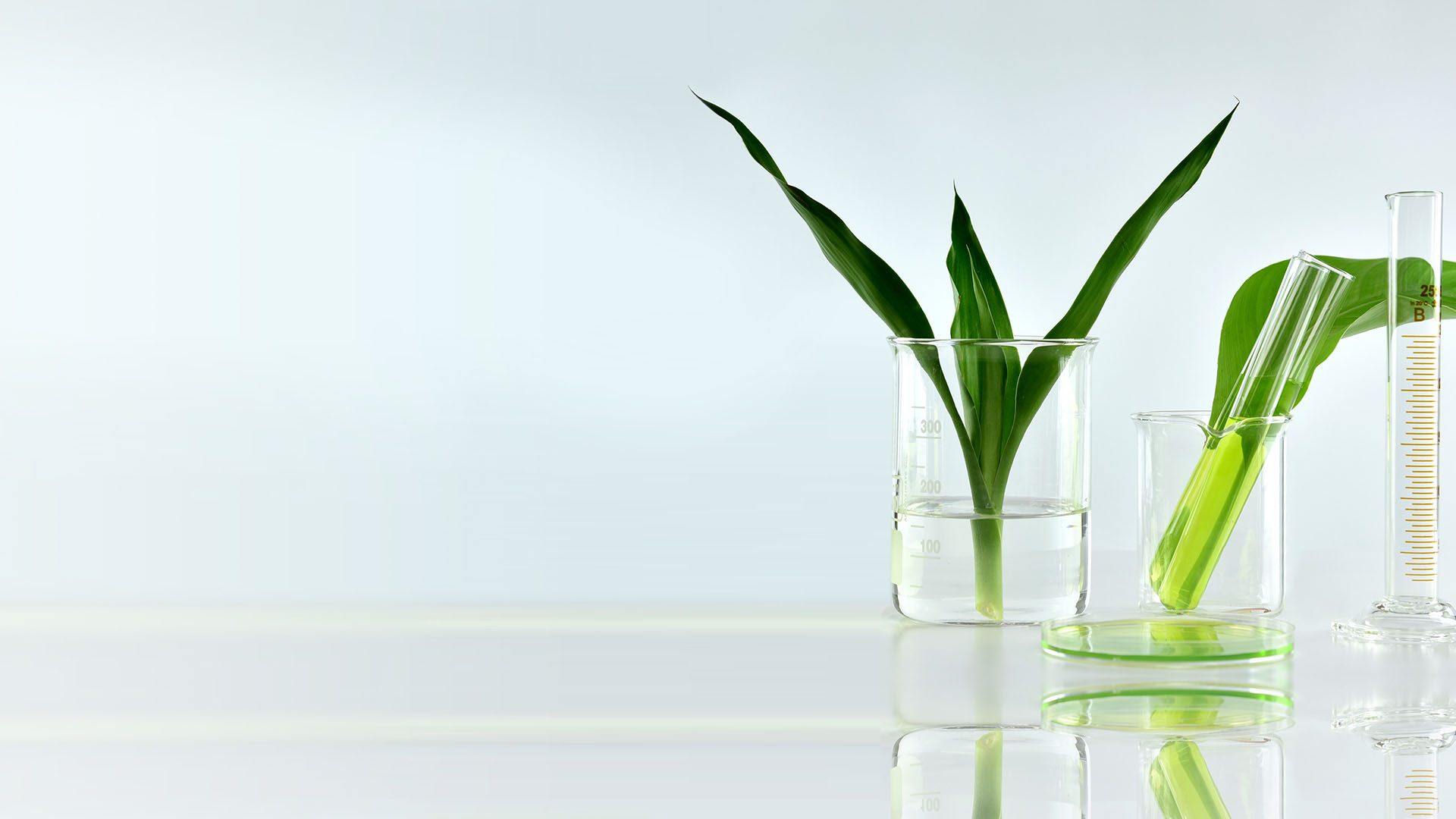Basic information about a healthy diet
(An analysis and review by Dr. Ernst W. Henrich, doctor for naturopathic treatment)
We all know the recommendations made by the media; we should eat more fruit and vegetables and less meat. The damage to health caused by meat and animal fats has been proven by many scientific studies. Likewise, the negative health consequences of milk, cheese (saturated animal fats) and eggs (cholesterol) are well known. When natural disasters or terrorist attacks claim hundreds or thousands of lives, there is great horror. But when the poor nutrition so prevalent in society today kills millions through cancer, cardiovascular disease and other diet-related diseases, it is met with an astonishing stoicism. The myth perpetuated by the meat and animal produce industry, that meat, milk and eggs are a healthy and valuable part of our diets, is remains uncontradicted by unsuspecting consumers and often disinterested politicians. This behaviour in politicians is totally unacceptable, as it places higher value on the interests of the meat and animal produce industry than on the health and well-being of the citizens – to whom they should be first and foremost obligated. Vegetarianism was unjustly denigrated in the past in the same way as veganism is today. Healthy diets are often put down in the media through sheer foolishness, ignorance or in the interests of science. Facing this are millions of people who are becoming ill and dying from malnutrition, in particular from obesity caused by eating meat and animal fats, and all the consequences thereof such as high blood pressure, heart attacks, angina pectoris, strokes, arteriosclerosis, cancer and other chronic diseases. These millions of illnesses and deaths caused by animal products are apparently taken to be “normal”.
That which is sprouted by the lay press and lobbyists for the animal produce industry stands in direct contrast to the findings of scientific nutritional research and the testimony of renowned dieticians. An example is shown in a relevant policy document published in 2003 by the ADA (American Dietetic Association) and the DC (Dieticians of Canada) collectively on the Health benefits of vegetarian (meat-free) and vegan (no meat, fish, milk or eggs) diets. Many of the most renowned dieticians in the USA and Canada are members of these associations. The ADA alone has around 70 000 members. In this official policy document it states:
“Well planned vegan and other forms of vegetarian diets are appropriate for all phases of the life-cycle, including pregnancy, lactation, early and later childhood and adolescence. Vegetarian diets offer a range of benefits.”
It also says that:
“It is the position of the American Dietetic Association (ADA) and the Dieticians of Canada (DC) that a sensible, well-planned vegetarian diet is conductive to good health and suitable for meeting nutritional needs, as well as a being a healthy way of preventing and treating certain illnesses.”
“It is the responsibility of dieticians to support and strengthen interest in vegetarian diets.”
One of the most recognised and renowned German dieticians Prof. Dr. Claus Leitzmann from the University of Gieβen is also clear on the subject:
“Studies with people living vegan lifestyles which are being carried out across the world show that vegans are on average healthier than the general population. Body weight, blood pressure, cholesterol, kidney function and general state of health are by and large worse in the normal population. In addition to these positive aspects a vegan diet is less damaging to the environment (liquid manure and methane from animal farming), Developing countries will become more independent (no import of animal feed) and animals will be more humanely treated. Therefore the breeding of livestock, animal farming, transportation of animals and animal experiments will be reduced or can be completely eradicated.”
Nevertheless a large number of people in the media, doctors and would-be “nutritional experts” prefer to propagate the biased untruths of the profiting industry and outdated, incorrect doctrine of the past. Is it convenience or simply laziness that stops us from making a stand and instead causes us to rather hawk the same prejudices and false facts? Are we afraid that new insights will make us aware of the shortcomings in our own diets, and make us face the decision to choose a vegetarian or vegan diet which we have rejected in the past?
Even the genius of the 20th century, Albert Einstein, said:
“Only two things are infinite, the universe and human stupidity, and I'm not sure about the former"
Einstein also said:
“Nothing will benefit human health and increase chances for survival of life on Earth as much as the evolution to a vegetarian diet”.
The situation is so dramatic, even perverse, that people are not only damaging their own health with the consumption of animal products, but also causing the cruel suffering and death of their fellow creatures through their self-indulgent exploitation, and damaging the environment with liquid manure, methane, water consumption, deforestation and the production of animal feed. Importation of animal feed (from developing countries for “factory farms” in industrialised nations) contributes to adults and children in the “third-world” dying of starvation. To “produce” 1 kg of meat takes approximately 16 kg of vegetable feed. So the animals of the rich eat the bread of the poor. All in all, this is a perfected moral capitulation.
The whole situation is a first-rate health care policy scandal. The prevention of illness should, must, at least be afforded the same level of priority by the medical field as the treatment of illness. But in the billion dollar health system of doctors, hospitals, pharmaceutical industry etc. the most money is earned from treatments. No wonder that the prevention of illness through a healthy diet has been put on the backburner, with the unfortunate situation that exists in the health, meat and animal produce industries. An unhealthy diet is earning the food industry a lot of money, and people are becoming ill. Treating these people then earns the health industry a lot of money. So people, animals and the environment are stuck in this vicious circle. All that is left is for citizens who are reasonable and intelligent is to look after themselves and take care of proper nutrition themselves. This brief summary of the most important medicinal knowledge with regards to nutrition and personal medical experience should help with these efforts.
Unfortunately, nutritional science basically plays no role at all in the curriculum for medical doctors.
Consequently, the catastrophic lack of knowledge and the prejudice of many medical doctors with regards to healthy nutrition is not surprising. Only those medical doctors who are interested and who, out of a feeling of responsibility for their patients, want to learn more about scientifically proven nutritional facts have sufficient knowledge for the good of their patients.
The outcome of an unprejudiced analysis and judgement cannot be contended: A correctly adjusted, varied vegan diet is the most healthy way of eating for human beings. When looking at the nutritional scientific facts there can be no reasonable doubt about this. Even when looking at the facts with little knowledge about the physiology of nutrition, it becomes quickly clear that meat, milk, cheese, eggs and sometimes fish are associated with grave health risks that could be documented in many cases. But a diet which simply removes meat, milk, cheese, eggs and fish does not automatically become a healthy diet. An incorrectly adjusted, unvaried vegan diet is unhealthy as well! This is true despite the fact that the majority of vegetarian and vegan people show a better state of health than people who eat meat. That is why in the following I will give a brief overview on the most important facts of a healthy vegan diet, in order to make it clear why a vegan diet is the healthiest way of eating. I have had the same experience during the past years over and over again: Whoever is against a vegan diet, either knows too little about it, or profits from animal products.
Definitions:
- Vegan diets exclude all dietary components derived from animals, such as meat, milk, milk products, cheese, fish and honey.
- Vegetarians eat no meat
- Ovo-lacto-vegetarians eat no meat but will eat milk and eggs
- Ovo-vegetarians exclude meat, milk and milk products but will eat eggs
- Lacto-vegetarians do not eat meat or eggs but will consume milks and milk products
The most important element of a healthy diet – Protein
Although the layman often fears that a meat-free diet equates to a deficiency in protein (so successful have the meat industry’s marketing ploys been), vegans and vegetarians have no problems when it comes to finding versatile and diverse means of consuming protein. As we now know, a lack of protein is not the problem with today’s “normal” diet, but rather too much animal protein which leads to health problems. Too much animal protein, together with animal saturated fats, has been shown by a range of scientific studies to be responsible for many diseases such as cancer and cardiovascular disease.
Protein consumed with food is broken down in the intestine into individual components known as amino acids. The amino acids are then reabsorbed by the intestine and used in the organism to form the body’s own special, genetically determined proteins.
Recommended daily allowance: Approx. 0,8 g protein per kilogram of body weight per day
Energy Supply
The energy supplied by a vegetarian, and particularly a vegan, diet is optimal. However for ablactating babies a greater supply of energy should be ensured and therefore sufficient amounts of energy-rich foods such as cereals, pulses and nuts should be eaten to guarantee an ample supply of energy.
Note: A well-planned vegan eating plan caters for good health and normal development of breast-feeding babies, children, adolescents and adults.
Carbohydrates
Carbohydrates are subdivided into:
- Sugars (simple carbohydrates such as glucose, lactose, sucrose, fructose)
- Starches (complex carbohydrates, comprised of long chains of glucose molecules)
- Indigestible dietary fibre (particularly non-starch polysaccharide)
Carbohydrates should account for 55-75% of one’s energy uptake. Complex carbohydrates of wholemeal cereals, pulses, fruit and vegetables are preferable. Sugars in the form of sweets should be cut down on, or preferably cut out, as sugar places one at risk of developing caries or diabetes, becoming overweight or developing other illnesses. The simple carbohydrates in whole food, fruit and vegetables do not pose these risks, as sugars are combined with water and roughage and therefore reduced. The necessary quantity and composition of carbohydrates recommended by dieticians are usually only achieved by vegetarians and vegans.
Fats
Fats consist primarily of fatty acids. 3 fatty acid molecules with one glycerine molecule form a triglyceride. Cholesterol only exists in noteworthy quantities in animal produce.
Fatty acids are subdivided into
- saturated fatty acids
- monounsaturated fatty acids
- polyunsaturated fatty acids
All saturated and all monounsaturated fatty acids can be created by the body. Polyunsaturated fatty acids, especially linoleic acid and alpha-linoleic acid are essential, which means that the body cannot synthesise them itself and must receive them from food. Therefore popular science has named these fatty acids vitamin F. The body can use the two most important unsaturated essential fatty acids, linoleic acid and alpha-linoleic acid, to create all other unsaturated fatty acids. Linoleic acid is an omega-6 fatty acid. Alpha-linoleic acid is an omega-3 fatty acid.
Linoleic acid is metabolised by the body into gamma-linoleic acid and further into arachidonic acid and growth hormones such as prostaglandin E1 + E2, thromboxane A1 + A2 and leukotriene B4. These growth hormones are involved in inflammatory, immunological and allergic reactions and have a vasoconstrictive effect.
Alpha-linoleic acid is converted by the body into eicosapentaenoic acid (EPA), docosahexaenoic acid (DHA) and further into the growth hormones prostaglandin E3, thromboxane A3 and leukotriene B5. These growth hormones not inflammatory or vasoconstrictive and have a partly antagonistically effect on the growth hormones comprised of the omega-6 fatty acid linoleic acid. This creates a balance between these growth hormones. This is only achieved when one has a balanced ratio of omega-6 fatty acids (linoleic acid) to omega-3 fatty acids (alpha-linoleic acid) in one’s diet. The optimal ration of omega-6 fatty acids to omega-3 fatty acids is between 2:1 and 5:1. The rebuilding of linoleic acid and alpha-linoleic acid into the respective growth hormones competes for the same enzyme systems.
If too much linoleic acid is ingested then less eicosapentaenoic acid (EPA) and docosahexaenoic acid (DHA) is formed, and in turn less of the one type of growth hormone is created. Linoleic acid depresses LDL levels, but also has the negative effect of likewise depressing HDL levels in the blood, which is in opposition to a negative cholesterol indicator. Alpha linoleic acid depresses only the LDL levels and not the HDL levels.
On these grounds a higher intake of omega-3-fatty acids is generally recommended. Even the diets of many vegans have too high a percentage of linoleic acids and too low a percentage of alpha-linoleic acids due to a lack of relevant knowledge. However we can achieve equilibrium in our diets when we favour oils rich in alpha-linoleic acids (linseed oil contains 54% linoleic acid) and choose oils with a balanced fatty acid content (rapeseed oil contains about 10% linoleic acids and 20% linoleic acid, so a perfect amount). Rapeseed oil can also be used for frying when it is not done at too high a temperature. Overall olive oil is better suited to frying than rapeseed oil. Linseed oil should not be heated.
Because too little eicosapentaenoic acid (EPA) and docosahexaenoic acid (DHA) is converted into alpha-linoleic acid, a supplementary intake of DHA is recommended, from which EPA is created. Eicosapentaenoic acid (SPA and docosahexaenoic acid (DHA) are also contained in fish oils. A Swiss study has shown the disadvantages in consuming fish oils, namely that sea pollution has loaded too many fish with unhealthy environmental toxins and that over-fishing has led to many species of fish becoming endangered. Fish themselves do not create omega-3-fatty acids, but ingest these fatty acids from sea algae or by eating other fish which live off these sea algae. Therefore it is logical to go directly to the source (algae) if one wants to ensure that one consumes enough DHA as an omega-3-fatty acid, and algae products should be taken as nutritional supplements. This algae oil conserves the environment and resources and does not create environmental pollutants during production. Dr. Baumann SkinIdent also offers such a product.
The use of fats is generally far too high in the population. The saying applies: Too much fat makes you fat. This is hardly surprising, considering fat is 9 Kcal per gram whilst protein and carbohydrates are only 4 Kcal per gram in comparison. It is recommended that maximum 30% of one’s total calorie intake should be comprised of fats. Relevant research has concluded that only vegans are allowed this benefit. According to the World Health Organisation (WHO) it is desirable that an equivalent of 15% of one’s total energy intake be from fats. If more than 20% of one’s total calorie intake is from fats then weight problems begin. A benefit of a vegan diet is that it contains only small amounts of the saturated fatty acids which pose a health risk. Saturated fatty acids are derived mainly from animal products. Saturated animal fats are the chiefly responsible for the rise in blood cholesterol levels. So called trans-fats are as unhealthy as saturated fatty acids, as they have exactly the same negative impact as saturated fatty acids. They are found in cow’s milk and fat deposits of ruminants as well as the hydrogenated oils in some margarine.
Mono- and polyunsaturated fatty acids are derived mainly from plant fats and oils and are healthy in moderate amounts and in the right proportions.
Studies have shown a correlation between diets high in fats, particularly a high intake of saturated fatty acids, and heart disease. Likewise studies are able to show the link between eating meat, animal protein and animal fats and an increased rate of breast cancer, uterine cancer, prostate cancer, pancreatic cancer and intestinal cancer.
The recommendation for adults, teenagers and children to reduce their calorie and fat intake does not apply to nursing babies. Babies require a particularly high energy supply from their diets for healthy development. Over 50% of the calories in breastmilk are derived from fats. Breastmilk is the ideal diet for newborns. Babies should therefore still be breastfed whenever possible. In any event, after weaning an energy-rich diet is still necessary.
Vitamin A and beta-carotene
Although vitamin A is only contained in animal foods, it is still possible for a well-balanced vegan diet to provide the body with the necessary amount of vitamin A, as carrots, green leafy vegetables and fruits such as apricots mangos and pumpkin contain large amounts of beta-carotene. Beta-carotene is the plant-derived precursor of vitamin A, which is created in the body from beta-carotene.
Beta-carotene and vitamin A is important for normal growth, the eyes, the skin and the mucous membranes. Free radicals are rendered harmless. Too high a dosage of vitamin A is poisonous. Excessive vitamin A intake during pregnancy can harm the foetus. According to current knowledge this does not apply to beta-carotene.
Vitamin B1 (Thiamine)
Vegan diets supply large quantities of thiamine, provided that enough wholewheat products, wheatgerm, pulses, peanuts and potatoes are eaten. Vitamin B1 is necessary for energy release. A deficiency develop when large amounts of refined sugar (sweets) are absorbed.
Vitamin B2 (Riboflavon)
Vegan diets provide a satisfactory amount of vitamin B2, provided that riboflavin-rich foods such as beans, broccoli, peas, lentils, wheatgerm, wholemeal cereals, wholewheat bread, nuts, pulses, yeast extracts, mushrooms, asparagus, bananas, figs, cabbage, potatoes, tofu, tempeh and avocados are eaten. Vitamin B2 is necessary for energy release.
Niacin (nicotinic acid and nicotinamide)
Vegan diets are rich in niacin. It is contained in wholemeal cereals, peanuts, wheatgerm, wholewheat bread, peas and yeast extracts.
Vitamin B5 (Pantothenoic acid)
Pantothenoic acid is contained in wholemeal cereals and pulses and is necessary for the production of energy in the body. A deficiency is unlikely in balanced vegan diets and has not been observed to date.
Vitamin B6 (Pyridoxal, Pyridoxin, Pyridoxamine)
The vitamin B6 depends on protein intake. Because vegan diets to not include excessive or unhealthy amounts of protein, they are not likely to be deficient in vitamin B6. It is contained in potatoes, wheatgerm, mushrooms, wholemeal cereals, peanuts, nuts and avocados.
Folic Acid
Folic acid is important for the metabolism of amino acids and, together with vitamin B12, for haematopoiesis in bone marrow. It is contained in green leafy vegetables, beans, asparagus, brussel sprouts, soy flour, wheatgerm, nuts and yeast extracts. Vegan diets are rich in folic acids. Pregnant women following any type of diet need to take additional folic acid for the protection of the unborn baby, but with a varied, correctly composed vegan diet there is no need to worry about a folic acid deficiency.
Vitamin H (Biotin)
Biotin is found in wholemeal cereals, soy flour, vegetables and fruits. It is also formed by bacteria in the intestine, where it is possible that a portion of it is able to be reabsorbed. A varied vegan diet provides ample biotin. A deficiency is unlikely.
Vitamin C (Ascorbic acid)
A large amount of this vitamin can be found in fruit and vegetables. Because a vegan diet is rich in fruit and vegetables an undersupply isn’t an issue. On the contrary, vegans consume very large amounts of vitamin C. This improves and ensures the absorption of protein in the intestine.
Ascorbic acid is an antioxidant vitamin which, together with vitamin E, is necessary to protect the body from free radicals. It breaks down slightly with long storage, preparation and heating.
Vitamin D (Ergocalciferol = D2, cholecalciferol – D3)
Vitamin D is built up in the skin by UV radiation. Therefore animal resources are relatively unimportant when it comes to this vitamin. Vitamin D-enriched foods or nutritional supplements are only necessary during the winters for people living above the latitude of 52 degrees north, especially for those with a dark skintone, breastfeeding mothers or babies being weaned. Otherwise, 5 to 15 minutes of UV-radiation on face, hands and underarms daily will suffice.
Vitamin D is necessary for bone development and the absorption of calcium in the intestine. A deficiency in children leads to rickets and in adults to osteomalacia (adult rickets).
Note: for vegans and vegetarians taking nutritional supplements it is worth noting that vitamin D3 (cholecalciferol) is mostly derived from animal origins, while vitamin D2 (ergocalciferol) is not derived from animals.
Vitamin E (tocopherols)
Vitamin E is found in high quantities in many plant oils. As an antioxidant it protects the cell membranes from damaging free radicals. A fully-fledged vegan diet ensures a rich supply of vitamin E.
Vitamin K (Phylloquinone = K1, menatetrenone = K2)
Vitamin K1 is abundant in plant foods. Vitamin K2 is formed by bacteria in the intestine. A deficiency is not likely under normal circumstances.
Calcium
Calcium is important for stable bone development and diverse metabolic processes in the body. A deficieny in calcium causes rickets in children and osteoporosis and osteomalacia (adult rickets) in adults. A calcium deficiency can be caused by a vitamin D deficiency as well as by a negative calcium balance.
The calcium balance in our bodies is dependant on the supply and elimination of this mineral. Usually dietary suggestions recommend that one take a lot of “healthy calcium”, without explaining at the same time how one can eliminate as little calcium as possible.
As a matter of fact, a high intake of foods with animal proteins leads to a higher rate of calcium elimination through the kidneys. Proteins, which are rich in sulphurous amino acids, can cause a break down of calcium in the bones. A relatively large quantity of sulphurous amino acids is found especially in eggs, meat, fish, poultry, as well as in nuts and some types of cereals. An excessive intake of natrium can also faciliate calcium loss. A scientific study in 1998 found that plant proteins from soy milk and tofu do not cause calcium loss.
Even with a low calcium supply and a high intake of plant proteins, the calcium balance remains stable!
It is also understandable that in industrialised countries which consume large amounts of meat and animal proteins the recommendations for calcium intake are increased. The loss of calcium caused by animal protein is thereby counter-balanced. The situation is absurd, as the following comparison makes clear: one continues to add water to a bucket to keep it full, without bothering to plug the hole at the bottom of the bucket. The result: in western industrial nations with high calcium supply and which consume a lot of milk osteoporosis is spreading the fastest! The enormous consumption of animal proteins in the form of meat, fish and poultry also leaves its mark. In other communities with a reduced intake of animal protein, osteoporosis is relatively uncommon, even though the calcium supply is also reduced.
The moderate and healthy plant-based protein intake associated with vegan diets means that little calcium is lost. In addition, green vegetables with low oxalate content such as broccoli, Chinese cabbage, cabbage, stem and turnips possess calcium with a higher bioavailability of 49-61%. In comparison, cows milk has calcium with a reduced bioavailablity of 21-24%.
Although there are no reports on calcium deficiency in vegan adults, it is always advisable for a healthy, varied vegan diet to include as much calcium as possible. Especially children should make sure to eat a calcium-rich diet. Good sources are calcium-enriched tofu, beans, green leafy vegetables such as kale, dried fruit, calcium-enriched soy milk, nuts, seeds, almonds, sesame seeds and molasses.
Magnesium
Magnesium is an important mineral which is necessary for a multitude of metabolic activites in the body. A varied vegan diet is an excellent source for magnesium
Phosphorus
After calcium, phosphorous is the second most common mineral in the body. Phosphorous is abundant in plant foods. Phosphorous deficiency is unheard of.
Natrium and Chloride
The recommendations for the intake of table salt (NaCI = Natriumchloride) have been reduced, because too high an intake has caused fear of health risks. Vegan diets generally include lower amounts of table salt than omnivorous diets, but it is still often too high.
Potassium
In the past few years the recommendations have tended towards a higher potassium intake. A high potassium supply seems to offer health benefits. A well-planned vegan diet with potatoes, vegetables, fruit and fruit juices ensures a high potassium supply.
Iron
Iron is a good example of how inaccurate advice from unknowledgeable “experts” or self-serving interested parties comes about. Meat and other animal products are definitely not required in order to ensure a good supply of iron to the human body. Plant products, especially wholewheat products and pulses, contain particularly rich amounts of iron. It is true that with vegetarian diets less iron is absorbed from the intestine, but a well-planned vegan diet ensures that much more iron is consumed nutritionally, which compensates for a reduced absorption rate. In addition, certain dietary substances can promote absorption. These include vitamin C and other organic acids, a large amount of which are contained in the fruit and vegetables consumed by vegans. However this does not exclude the fact that vegetarians and vegans who eat incorrect foods and follow a one-sided diet can suffer from anaemia caused by lack of iron.
And what do the other facts show us?
Vegans and vegetarians are not more likely to suffer from iron deficiency than the rest of the population! It is well known that too much iron can be detrimental and can cause various illnesses. Meat eaters often have too much iron in their blood. Large amounts of iron can lead to the development of free radicals in the body, which aggressively destroy body cells and tissues, and can even cause cancer. Bacterial infections are often associated with excessive iron concentrations, as bacteria need this trace element to multiply. It is generally known that normally the body protects itself against this by lowering the iron levels at the onset of an infection.
Therefore a vegan diet is ideal for providing the trace element iron. It is not possible for a healthy person on a vegetarian diet to have an iron overload. In addition, plant foods contain so many antioxidants that free radicals are quickly rendered harmless.
Drink a glass of fruit juice containing vitamin-C at every vegan mealtime and avoid substances which limit the absorption of iron such as tannins in black tea. If you still have problems with iron supply, e.g after blood loss or heavy menstruation, determine your ferritin levels (iron-protein complex in the blood).
Zinc
A balanced vegan diet contains sufficient zinc. However foodstuffs with a lot of phytate have a repressive effect on the absorption of zinc. Good sources of zinc are wholemeal products, peas, pulses, tofu and nuts. A zinc deficiency is not likely with a varied, well-planned vegan diet.
Selenium
Selenium is a very important trace element, which together with vitamin E works as an antioxidant and can reduce damage by free radicals.
Selenium intake depends predominantly on the type of soil that plants are grown in. Northern and central Europe are areas low in selenium, so an additional intake in the form of dietary supplements or selenium-enriched wheat (E.g from the USA) is recommended, regardless of what type of diet is being followed. According to a Swedish study, vegans eliminate very little selenium, so it is probably that because of their diet they require a smaller supply. Previous studies which have measured the selenium concentration vegans’ blood has shown it to be within the normal range.
Iodine
Iodine is an important component of thyroid hormones. A deficiency leads to goitre. On these grounds it is recommended that one use iodated table salt as a goitre prophylaxis. Other vegan sources of iodine are sea Algae, seasalt and special yeast extracts.
Copper
A varied, well co-ordinated vegan diet with bread, cereals, wheat germ, nuts and seeds ensures a sufficient supply of copper. A deficiency has never been noted in vegans, but it does occur in babies feed exclusively on cow’s milk!
Chromium
Chromium is important for the metabolism of glucose and nucleic acid. Beans, wholemeal products, nuts and brewer’s yeast are good suppliers of chromium, so a chromium deficiency is not expected from a vegan diet.
Manganese
Tea, wholemeal products, nuts and spices contain a lot of manganese, so a vegan diet ensures an adequate supply.
Colbalt
Colbalt is supplied to the body in the form of vitamin B12.
Molybdenum
This trace element is a component of important enzymes. It is provided in sufficient amounts by a vegan diet including pulses, cereals and potatoes.
Nutrition and illness – an overview
In conclusion we provide a short overview on the fundamental results of scientific studies on positive health benefits of vegan and vegetarian diets compared with omnivorous diets.
Obesity/being overweight
- Being overweight/obese is well known to be an important risk factor for a range of severe illnesses.
- An English study of 4000 men and women showed that obesity (measured against the average body mass index) is highest in meat-eaters and lowest in vegans.
- The Oxford study on vegetarians showed the same results when comparing vegetarians to non-vegetarians.
Heart Disease
- 5 prospective studies with more than 76 000 participants have identified that the death rate from ischaemic heart diseases (such as coronaries, deficient myocardial blood circulation etc) is clearly lower amongst vegetarians than in the meat- and fish-eating population. The death rate amongst vegetarians was also lower when compared to moderate meat-eaters who ate meat less than once a week or only ate fish.
- A study has shown that the risk of developing heart disease is lower amongst vegetarians than ovo-lacto vegetarians.
High Blood Pressure
- Many studies have proven that vegetarians have a lower systolic as well as diastolic blood pressure
- A Swedish study has shown that a vegan diet is effective in healing patients with chronically high blood pressure. After a year of being on a strict vegan diet, 22 patients out of 26 were completely symptom-free while four had fewer complaints and 20 patients were able to stop their medication.
Diabetes
- A couple of studies have documented that a meat-free diet reduces the risk of type II diabetes (adult diabetes)
- Even occasional meat-eaters are at a higher risk than vegetarians.
Cancer
- The unequivocal findings of many studies: the overall cancer rate is lower amongst vegetarians
- Non-vegetarians are at a considerably higher risk for colon cancer, rectal cancer and prostate cancer.
- Both red meat (beef, pork, veal, mutton etc.) as well as white meat (poultry) are independently connected to an increased risk of intestinal cancer. The high haem content in meat forms dangerous cytotoxins which increase the risk of intestinal cancer.
Mental capacity
- American studies show that people who consume meat, poultry and fish are at more than double the risk of developing dementia (mental deficiency, defective intelligence). Long-term meat-eaters are at a three times higher risk of developing dementia.
- A Dutch study as well as an American study have shown that vegan children are more intelligent.
Milk and health – a breif overview
Milk and diary products have also been portrayed by the media and nutritional experts as being a particularly healthy drink. However, when on closer inspection one sees that milk fat contains approximately 65% saturated fatty acids, that the proteins in milk are denatured through pasteurization – which can have a negative impact on health – and that many people are lactose intolerant, the many negative consequences of drinking milk become evident. This has been proven by a range of studies:
- Recent studies have pinpointed a correlation between milk consumption and prostate cancer.
- Feeding cows’ milk to babies at an early stage often leads to iron deficiency and iron deficiency anaemia. Iron deficiency anaemia is the greatest cause of mental and physical impairment.
- Feeding babies with cows’ milk carries the risk of internal gastro-intestinal bleeding which leads to iron loss.
- The frequency of juvenile diabetes (type 1) increases with an increase in milk consumption.
- An American study on children discovered that blood cholesterol levels are linked to milk consumption.
- Many studies have identified a correlation between milk consumption and the development of heart disease. In countries with low milk consumption, a lower number of deaths due to heart disease have been noted.
- In one study the presence of heliobacter pylori bacteria was researched, which is responsible for gastritis, duodenal ulcers and stomach cancer. The highest number of bacteria was detected in milk-drinkers and the lowest number in vegans.
The health risks associated with milk are best outlined in a statement by Professor Dr. Frank Oski, a renowned paediatrician and former president of the US Society for Pediatric Research:
“If the public is informed about the intrinsic risks of drinking milk, perhaps at last only calves will drink the food owing to them. Because only calves should be drinking cows’ milk.”
Is it not absurd that every year pitiable cows are impregnated so that they will produce milk until in a few years’ time when they are completely sapped, they are slaughtered, and the mass-produced calves are inevitably used for veal or simply destroyed (so-called Herod’s bounty), all so that people can consume milk and diary products at a risk to their health?
Conclusion
You now have the necessary information to decide on two alternatives on your own authority:
- To look after your own health by following a vegetarian/vegan diet and thefore providing a valuable foundation for healthy skincare, or
- continuing to trust in people who have no comprehensive knowledge about healthy diets or who represent the scientific interests of the animal production industry, and thereby damaging your own health, including the health of your skin and the lives of your fellow creatures.
You only have one life to live and one health to protect.
Literature
- “Vegan Nutrition” by Langley, published in 1995 by Echo, Göttingen
- Policy document by the ADA (American Dietetic Association) and the DC (Dieticians of Canada) on the health benefits of vegetarian and vegan diets, published in 2003, available on the internet under www.eatright.org/Member/Files/veg.pdf
- Vitamin Lexicon for doctors, pharmacists and dieticians by Bässler, Golly, Loew, Pietrzik, published in 2002 by Urban and Fischer
- Vegetarian Nutrition by Leitzmann, Hahn, published in 1998 by Trias Publishers.










